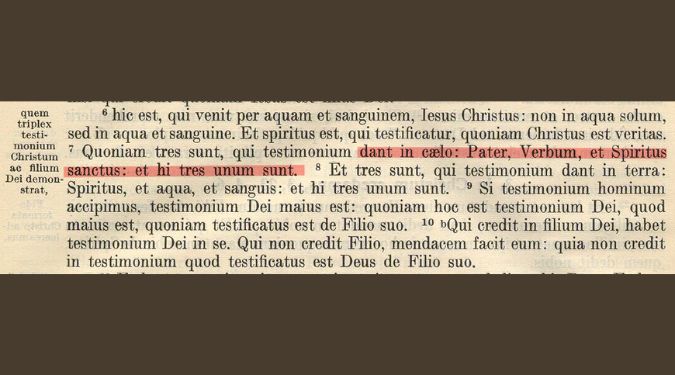Not all Psalms — and not every part of every Psalm — can be repeated and assimilated by Christians, and even less by modern man. At times, they reflect a historical context and a religious mentality that are no longer ours. This does not mean that they were not inspired, but in some ways, they are linked to a [particular] time and a temporary stage of revelation, as is also the case with a large part of ancient legislation. Pope Francis, General Audience, June 19, 2024
The words of the Pope trouble me because it is hard to believe that any inspired psalm or piece of a psalm cannot “be repeated and assimilated by Christians” in at least some way.
Having said that, you must know that the Book of Psalms contains many verses that should trouble us, at least upon first reading. I am speaking particularly of the “curses” or the “imprecatory psalms”. The psalms of which the Pope spoke must certainly include these: 5:9-10; 28:3-5; 35:1-9,26; 55:9,15,23; 58:6-11; 59:5,11-13; 69:22-28; 79:6,10-12; 83:9-17; 109:7-29; 137:7-9; and 140:10-11.
Take, for example, Psalm 109, in which the Psalmist prays that his wicked enemy be brought to trial by a wicked judge and that the outcome be like this:
May his days be few; may another seize his goods! May his children be fatherless, and his wife a widow! May his children wander about and beg; may they be driven out of the ruins they inhabit! Psalm 109:8-10 RSV
Let’s take what many consider to be the most egregious example:
O daughter of Babylon, you devastator! Happy shall he be who requites you with what you have done to us! Happy shall he be who takes your little ones and dashes them against the rock! Psalm 137:8-9
“Dash those Babylonian babies against the rock!” the Psalmist seems to be urging.
But if the psalms are inspired how could they not offer us some good benefit? They do.
The Literal Sense
Let’s take the example from Psalm 137 on the cursing of the Babylonian babies. This psalm was probably written during or shortly after the Babylonian exile when Jews had been forcefully deported to Babylon and all kinds of atrocities perpetrated upon them. The prophet Nahum reports:
Yet she was carried away, she went into captivity; her little ones were dashed in pieces at the head of every street; for her honored men lots were cast, and all her great men were bound in chains. Nahum 3:10
It seems that the killing of infants by Israel’s enemies was a commonplace occurrence during war, as the prophet Hosea reports:
Sama’ria shall bear her guilt, because she has rebelled against her God; they shall fall by the sword, their little ones shall be dashed in pieces, and their pregnant women ripped open. Hosea 13:16
The prophet Elisha said that it was practiced by the King of Syria too:
And Haz’ael said, “Why does my lord weep?” He answered, “Because I know the evil that you will do to the people of Israel; you will set on fire their fortresses, and you will slay their young men with the sword, and dash in pieces their little ones, and rip up their women with child.” 2 Kings 8:12
These imprecations expressed the anguish of a people who had been cruelly abused by their enemy, and the honestly expressed anguish acknowledges God’s reign. Catholic scripture scholar Scott Hahn writes:
The Imprecatory Psalms represent the anguish of a nation beset by its enemies who do not acknowledge the One God. Even these “curse” Psalms are an acknowledgment of God’s suzerainty (reign) over the whole world. (Hahn 743)
The famous British author and Christian apologist C.S. Lewis gives us two more possibilities with respect to the literal sense of these verses. C.S. Lewis points out that the curses are an example of vindictiveness that we often find within ourselves, and should seek to avoid. He adds that they are also a warning to us of the effects of our cruelty to others.
Still more in the Psalmists’ tendency to chew over and over the cud of some injury, to dwell in a kind of self-torture on every circumstance that aggravates it, most of us can recognise something we have met in ourselves…That, as I say, is a good use to make of the cursings. In fact, however, something else occurred to me first. It seemed to me that, seeing in them hatred undisguised, I saw also the natural result of injuring a human being. (Lewis 23-24)
Spiritual Senses
There are a few possible spiritual senses of the curses in the Psalms too.
The Roman Catechism, promulgated by Pope Pius V after the Council of Trent, gives two purposes of the “execrations”:
With regard to the execrations uttered by holy men against the wicked, it is certain, from the teaching of the Fathers, that they are either prophecies of the evils which are to befall sinners or denunciations of the crimes of which they are guilty, that the sinner may be saved, but sin destroyed. The Roman Catechism, Part IV, For Whom We Should Pray, Sinners (McHugh, O.P. and Callan, O.P. 527)
That the curses are denunciations of evil might seem obvious, but that they are often prophecies can be proven too. For example, the prophet Isaiah foretold the killing of Jewish infants by the Babylonians:
Their infants will be dashed in pieces before their eyes; their houses will be plundered and their wives ravished. Isaiah 13:16
St. Augustine, bishop of Hippo, Church Father and Doctor of the Church, was known to often take an analogical approach to extracting the spiritual sense of troubling verses. When addressing catechumens about to be baptized, he considered the Babylonian babies to be like small temptations to lust that should be smashed against the Rock that is Christ:
What are the little ones of Babylon? Evil desires at their birth. For there are those who have to fight with inveterate lusts. When lust is born, before evil habit gives it strength against you, when lust is little, by no means let it gain the strength of evil habit; when it is little, dash it. But you fear, lest though dashed it die not; Dash it against the Rock; and that Rock is Christ (1 Corinthians 10:4). (“Church Fathers: Exposition on Psalm 137 (Augustine)”)
Conclusion
Despite the Pope’s words I cited above, I am thoroughly unable to find an inspired psalm or piece of a psalm that cannot “be repeated and assimilated by Christians”. On the contrary, there are at least six possible ways to extract spiritual sustenance from the curses found in the Psalms: 1)We can recognize that they, in their own way, acknowledge God’s reign over the world. 2&3) We can view them as object lessons to avoid both vindictiveness and cruelty to other that may cause them to be vindictive. 4) We can consider them to be either prophecies or 5) denunciations of the evil that they curse, and 6) like St. Augustine, we can consider them to be a denunciation of evil in the world.
Works Cited
Pope Francis’s General Audience of 19 June 2024, 19 June 2024, https://www.vatican.va/content/francesco/en/audiences/2024/documents/20240619-udienza-generale.html. Accessed 22 October 2024.
“Church Fathers: Exposition on Psalm 137 (Augustine).” New Advent, https://www.newadvent.org/fathers/1801137.htm. Accessed 26 October 2024.
Hahn, Scott, editor. Catholic Bible Dictionary. Random House Publishing Group, 2009.
Lewis, C. S. Reflections on the Psalms. New York, Harcourt, Brace and Company, 1958.
McHugh, O.P., John A., and Charles J. Callan, O.P., translators. Catechism of the Council of Trent. Charlotte, Tan Books, 2009.



